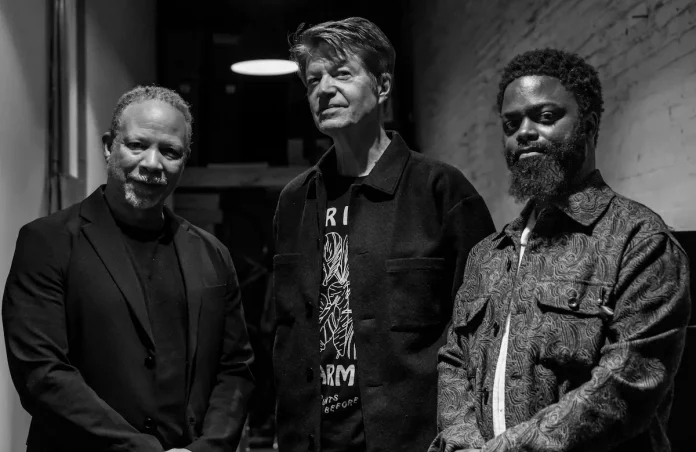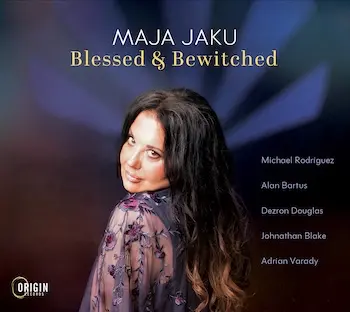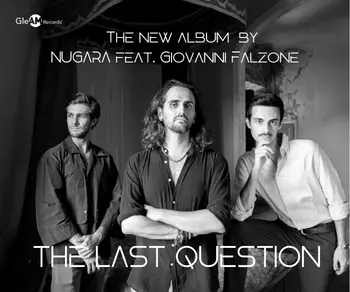Johnathan Blake: My Life Matters (Blue Note Records 7585478)
In 2022 there was a Drum Candy podcast interview in which Philadelphia-born drummer Johnathan Blake was quizzed about his early career playing with Roy Hargrove and the Mingus band in the late 1990s. A larger chunk of that chat though was on his approach to time, tempo and touch, a relaxed, forward motion at the drum set, that was described as a “Philly vibe” – something he may have inherited from fellow Philadelphians like Mickey Roker.
Of course, at 49 years of age and as a long-time resident of New York City, Blake has a vast range of drum influences. Listen to any of his recordings and you hear more than a nod to past jazz-drumming masters in his style and sound. You hear how much of a mark, say, R&B, hip-hop and electronic music has left on him as an artist and composer – in much the same way it has on his contemporaries Mark Guiliana, Kendrick Scott and Robert Glasper.
Co-produced by former Glasper band bassist Derrick Hodge, My Life Matters is Blake’s sixth solo record (and third for Blue Note) and stands as his most eclectic disc to date. Commissioned by the Jazz Gallery in New York, it’s also his most personal. A record that embraces various styles and sonic textures, this 14-track set plays like a song cycle or suite with short bursts of drums, neo-classical piano, spoken word accompanied by double bass or pulsating synth linking together tracks that powerfully address the subject racial injustice, the ongoing struggle for equality and, in the words of Blake’s parents “the importance of speaking up when we see injustices happen” – something heightened by the Black Lives Matter political and social movement five years ago.
From an opening skit featuring Blake at his kit soloing ferociously over flickering or turntable-scratched voice samples comes Last Breath, a dynamic, Latin-vibed track and reference to the late Eric Garner (a victim of police brutality in 2014), led by the seductive, swinging vibraphone playing of Jalen Baker. The gospel-hued ballad, Requiem For Dreams Shattered again features Baker, lending melodic twists to the sultry soprano of saxophonist Dayne Stephens, another key contributor to the album.
Complementing the acoustic outfit assembled for this date (completed by bassist Dezron Douglas, Fabian Almazan on various keys and vocalist Bilal), Stephens also lends EWI to the energetic title track and Always The Wrong Color, the latter over DJ Jahi Sundance’s turntable gymnastics and the chaotic din of Blake’s heavy breaks, more sampled voices and sporadic police sirens.
Interjected with more skits, the record cools off and bows out with two ballads, the ambient Tomorrow Be Brighter and We’ll Never Know, a slow, sassy blues lit with light piano and vibes entwined around broad, sluggish sax. It’s a fitting end to a cleverly arranged, hard-swinging, solid-grooved set from a versatile drummer with the same traits. It’s positively alive with the “Philly Vibe”.
Trio of Bloom: Trio Of Bloom (Pyroclastic Records PR42)
When it first streamed back in July, Queen King, the near-nine-minute lead track from Trio of Blooms’s debut album, seemed to be on constant loop for this writer. Afro-beat in vibe, the repetitive electric bass and drums ostinato, played by Nels Cline and Marcus Gilmore respectively, was at once warm and hypnotic, even when topped with the Casio-esque-sounding high-pitched keys hook courtesy of pianist Craig Taborn, who completes this supergroup.
Hearing the album in full, the track is one piece of a stunning puzzle of mesmeric tracks that make up this engaging LP. It’s also fair to say it’s the most instantly accessible, especially when you compare it to, say, the decidedly free and out there Why Canada, or the 10 minutes of bleepy keys, ghostly-bent electric guitar and boxy, treated drums that makes up Bloomers.
The album as a whole is the work of what the press release boldly describes as three “musical omnivores with indelible voices that reject categorization, sharing an indefatigable compulsion to venture into previously undiscovered musical territory” – all of which explains the thinking behind producer David Breskin bringing the three together and capturing the results on tape late last year.
Breskin was also the brainchild behind the Bill Frisell-Michael Gibbs-Ronald Shannon Jackson unit Power Tools, and any readers that might recall and relish the innovative, exploratory sound of that similarly uncompromising unit from the mid-1980s will dig this disc.
With a blustering groove from Gilmore, a lively reading of Shannon Jackson’s Nightwhistlers opens the album, its distant bass figure and loose, discordant guitar from Cline recalling Miles Davis’s Jack Johnson, until a mess of ghostly electronics are thrown into the mix. Licked with lap steel, Bend It appears to takes its inspiration from the same place, whereas tracks like Breath and Wayne Shorter’s Diana are rolled out more like serene sketches – minimal, with Taborn’s acoustic piano pensive amidst dry, chorus-heavy guitar, rumbling toms and a wash of cymbals.
Despite seesawing between chaotic and calm, this stunningly textured set never loses sight of adventurous interplay, strong themes and some live, earthy playing. It’s also a disc that reveals more spins, skids and angles with every listen, a multi-layered 70 minutes from an uncompromising three-piece you’ll want to hear more from.
Bruce Gertz Quintet: Octopus Dreams (Open Mind Jazz OMJ-17-D)
With a career that’s packed in performances and studio dates with such artists as Mike Stern, Joey Calderazzo, Gil Evans, Joe Lovano and John Abercrombie, bassist Bruce Gertz is also a professor of his instrument, teaching at the prestigious Berklee college in Boston. He’s also a competent leader and composer in his own right, as this new disc clearly demonstrates.
Octopus Dreams is a sophisticated set of light, loose, lyrical post-bop tunes from Gertz and his quintet, sonically warm in the tradition of classic Blue Note or Verve. The set opens with medium swinger Power Walk and a discordant melody split between trumpeter Phil Grenadier and tenorist Rick DiMuzio. Over simple accompaniment from drummer Gary Fieldman, Gertz and pianist Gilson Schachnik, the use of unison or harmonically split horn themes often recalls 60s Miles and Wayne Shorter, and is used on many of Gertz’s arrangements on this disc.
Through the title track Fieldman lays out a breezy bossa feel. The gentle tap of ride cymbal, clattery rim knocks and tom rolls – alongside Gertz’s soft bass – beautifully underpin some strong solos, especially from Grenadier on flugelhorn. Elsewhere, Sea Worthy is similarly Latin-inspired, bringing expressive breaks from all before fading out to a slow, subtle bomb-dropping drum groove.
Over half-time-felt brushes, the melody for ballad Mr. Z is at first split melodically between horns before again giving way to soft, expressive solos from horns and piano. While the set often tends to follow this standard theme and solos formula, the material is strong and Gertz and Co are a joy to tune into.




